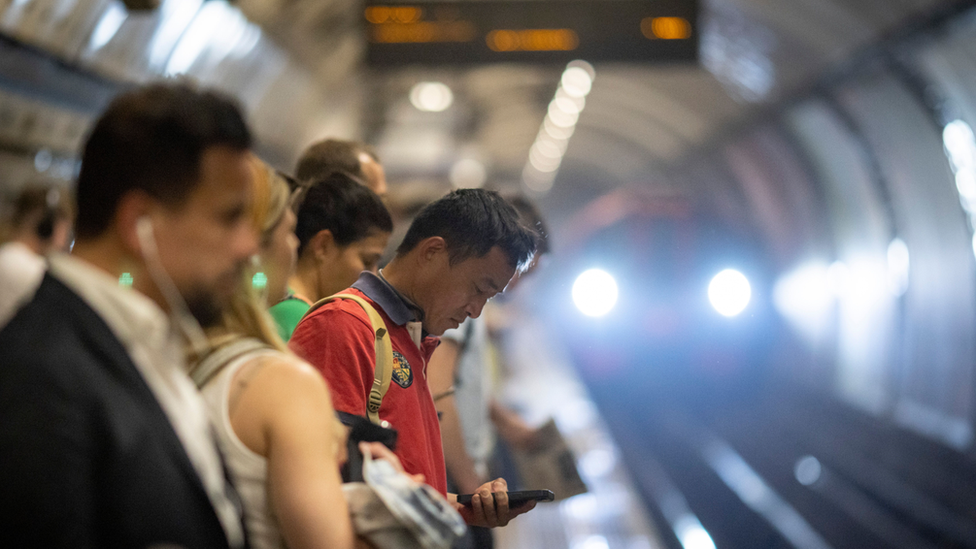Tube strike: London Underground drivers to walk out on Budget Day
- Published
- comments
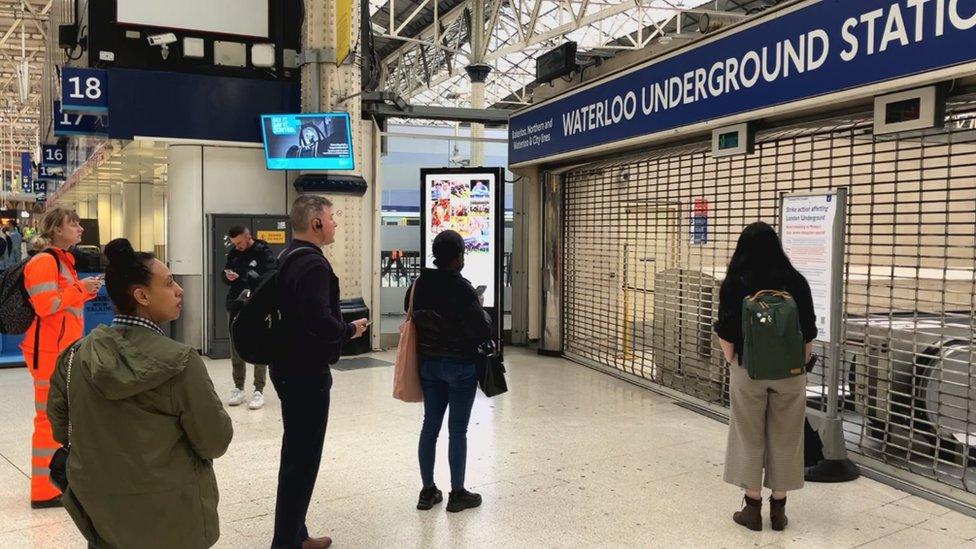
The Tube strike is due to take place on 15 March
London Underground drivers are to strike on 15 March, Budget Day, a train drivers' union has announced.
Aslef said the dispute was over a failure to accept changes to working arrangements and changes to pensions should happen by agreement.
Finn Brennan, from Aslef, added it would be the first day of action "in a protracted dispute" with Transport for London (TfL).
TfL urged the union to call off the "damaging strike".
Tube train drivers voted by 99%, on a turnout of 77%, in favour of a walk out, the union said.
Mr Brennan, the union's organiser on London Underground, said its members were not prepared to put up with "threats" to working conditions and pensions.
"We understand that TfL faces financial challenges, post-pandemic, but our members are simply not prepared to pay the price for the government's failure to properly fund London's public transport system," he said.
Mr Brennan added the union was prepared to discuss and negotiate on changes, however it wanted an "unequivocal commitment" from TfL that "management would not continue to force through detrimental changes without agreement".
Nick Dent, director of customer operations at TfL, said the transport authority had not proposed changes to pensions, and had been working with the unions to "see how we can make London Underground a fairer and more sustainable place".
He added: "We want to make London Underground a better place to work so we urge Aslef to call off this damaging strike and continue working with us."
In 2022 commuters endured six 24-hour strikes by the RMT union in a row over pension changes and job cuts.
A £3.6bn government bailout of TfL in August required the transport body to develop options around pensions.

Analysis by Tom Edwards, BBC London Transport correspondent
Aslef are the biggest Tube drivers union and last time they went on strike in 2015, the network shut down.
Union representatives say this is not a dispute over pay - it is about changes to existing working agreements, and crucially it's about pension reform.
As part of the government's bailout of TfL during the pandemic, it said the organisation had to carry out a pension review, as some in government thought savings could be made there, saying pensions were too generous.
Those pensions are a huge red line for the unions.
The union is expecting an announcement next week on pension reform, and Aslef is making its intentions very clear ahead of that with this pre-emptive strike, literally.

Last year, Mayor of London Sadiq Khan, who is also chair of TfL, said the strikes were "having a serious impact" on commuters.
He said he had repeatedly asked the unions to call off the strike and find a resolution with TfL, although he added he would "not support any unfair changes to pensions that attack the terms and conditions of transport workers".
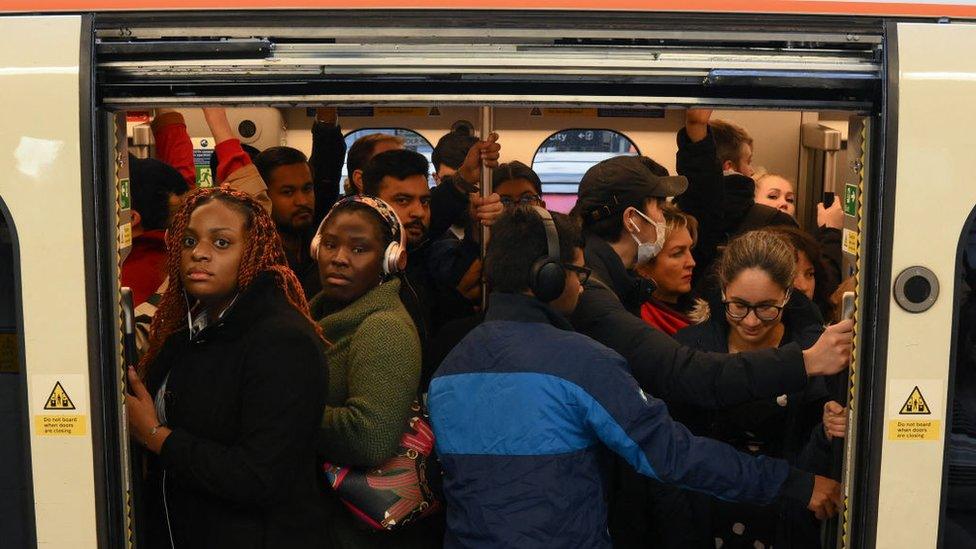
There were six 24-hour Tube strikes in 2022
London Underground workers received an 8.4% pay rise in April in a four-year deal, which guarantees 15,000 Tube workers an annual pay increase of 0.2% above the Retail Price Index, a measure of inflation published by the Office for National Statistics.
The strike comes as more than 100,000 civil servants in the Public and Commercial Services union are also walking out on the same day in a long running dispute over jobs, pay and pensions.

Follow BBC London on Facebook, external, Twitter , externaland Instagram, external. Send your story ideas to hellobbclondon@bbc.co.uk, external
- Published9 November 2022
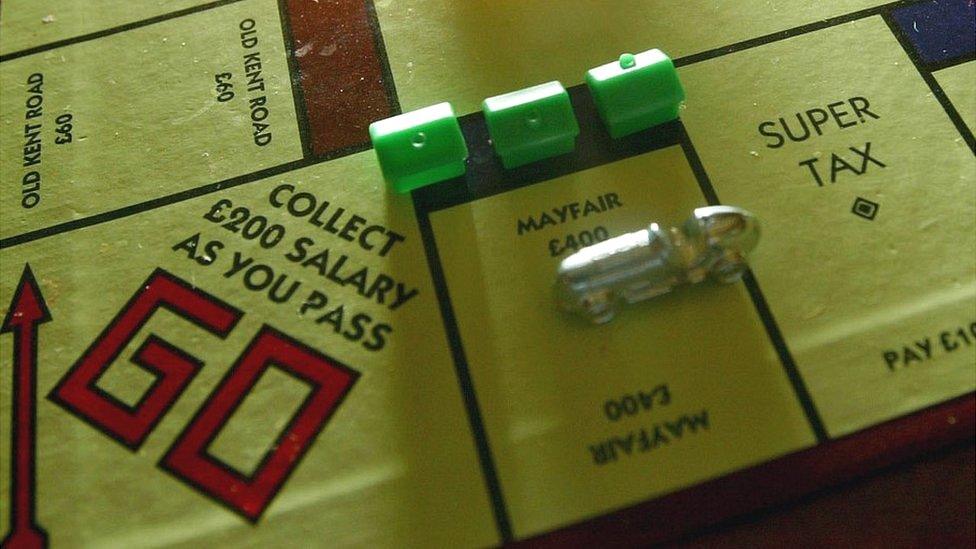
- Published31 August 2022
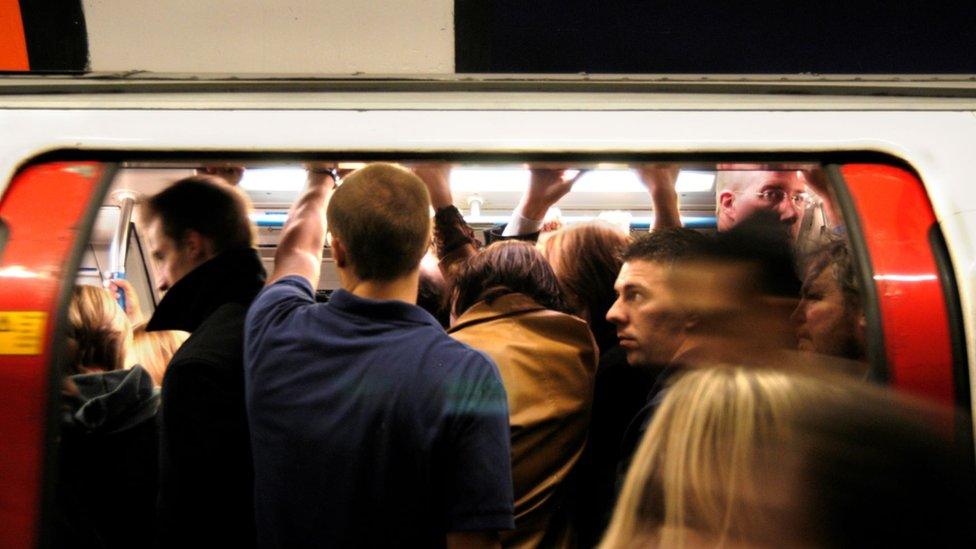
- Published30 August 2022
